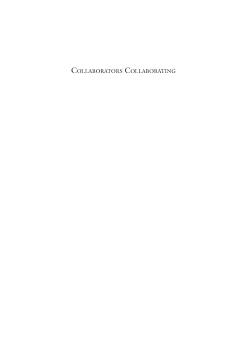
Additional Information
Book Details
Abstract
As bio-capital in the form of medical knowledge, skills and investments moves with greater frequency from its origin in First World industrialized settings to resource-poor communities with weak or little infrastructure, countries with emerging economies are starting to expand new indigenous science bases of their own. The case studies here, from the UK, West Africa, Sri Lanka, Papua New Guinea, Latin America and elsewhere, explore the forms of collaborative knowledge relations in play and the effects of ethics review and legal systems on local communities, and also demonstrate how anthropologically-informed insights may hope to influence key policy debates. Questions of governance in science and technology, as well as ethical issues related to bio-innovation, are increasingly being featured as topics of complex resourcing and international debate, and this volume is a much-needed resource for interdisciplinary practitioners and specialists in medical anthropology, social theory, corporate ethics, science and technology studies.
Monica Konrad is a medical anthropologist and former Bye-Fellow / Senior Research Associate of Girton College, University of Cambridge. Her research interests in contemporary ethical and organizational forms range across the arts, architecture and life sciences. She has conducted fieldwork amongst various therapeutic and research communities in relation to personalized healthcare and procreative practices (UK) and essential medicines and global health (Cambodia, Thailand, Europe). Her publications include Nameless Relations (2005) and Narrating the New Predictive Genetics (2005).
“…succeeds in catalyzing what is undoubtedly one of the most salient debates within 21st-century anthropology. The rich ethnographic chapters provide readers with food for thinking through the changes – from participation to collaboration, from informants to interlocutors – that are both the object of study for contributors and the imperatives that they are confronted with.” · Social Anthropology/Anthropologie sociale
“The volume points to valid and overlooked claims about the often- assumed benefi ts of collaboration and notes that in some settings, collaboration itself is touted as an axiomatically better way of conducting research and can yield better results than noncollaborative work. Assumptions about collaboration merit critique, and the contributors to this volume help reveal challenges in collaborative research processes.” · Collaborative Anthropologies
“Theoretically ambitious and ethnographically rich, this volume takes a timely and critical look at inter-, trans-, even post-disciplinarity, emphasizing the central importance of exploring actual experiences and cultural contexts for the purpose of addressing the limits and potential of border-crossing and broad collaboration. This is multi-sited scholarship in an extended sense, in terms of disciplinary focus as well as empirical domain, with reasonable respect for the experimental and the playful.” · Gísli Pálsson, University of Iceland
